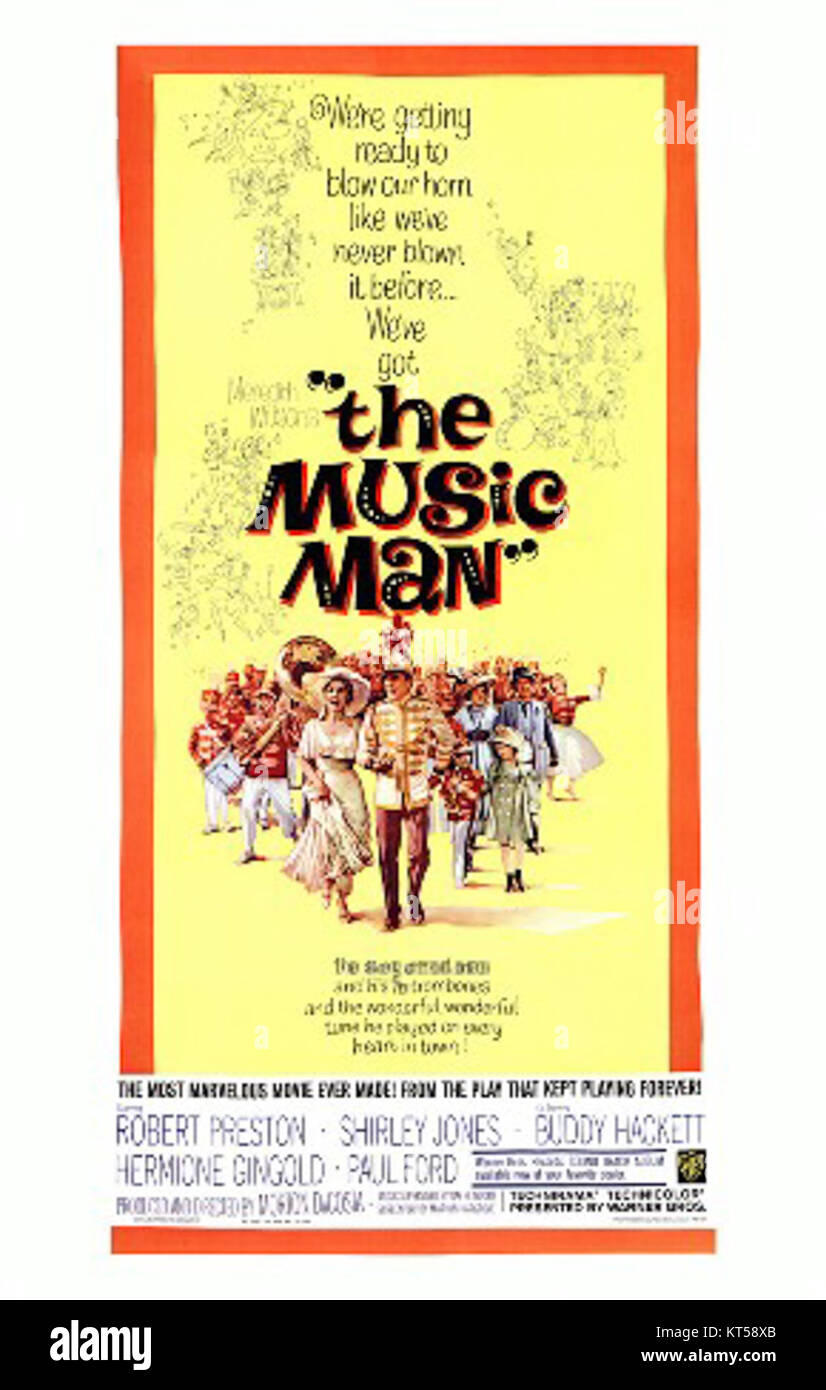There's something truly magical about musicals, and The Music Man stands out as a timeless classic. Set in the heart of small-town America, this movie captures the essence of community spirit and the transformative power of music. The film’s engaging storyline, memorable characters, and unforgettable songs have made it a beloved favorite for generations of viewers.
As we delve deeper into the world of The Music Man, let's uncover some fascinating facts that every fan should know. This iconic movie not only showcases the charm of its lead characters but also reflects the cultural and historical context of its time. Here are ten intriguing aspects of The Music Man that will deepen your appreciation for this cherished film.
Harold Hill's Charismatic Entrance
The character of Harold Hill, played by Robert Preston, is one of the most captivating figures in cinematic history. As a traveling con artist, he arrives in River City with a scheme to sell the townspeople on the idea of a boys' band. His charisma and persuasive charm immediately draw the audience into his world, setting the stage for an engaging narrative.
From the moment Harold steps off the train, his presence commands attention. His confident demeanor and slick sales pitch captivate both the townsfolk and the viewers. This initial introduction sets the tone for the entire movie, highlighting the central theme of deception versus truth.
Robert Preston's portrayal of Harold Hill remains one of the standout performances in musical cinema. His ability to convey both charm and mischief makes the character complex and endearing, leaving a lasting impression on audiences worldwide.
River City: A Symbolic Setting
The fictional town of River City serves as more than just a backdrop for the story; it symbolizes the quintessential small-town America of the early 20th century. With its quaint streets and tight-knit community, River City embodies the values and traditions of the era. This setting provides a perfect contrast to Harold Hill's modern schemes.
The film uses River City to explore themes of change and progress. As Harold introduces new ideas and challenges long-held beliefs, the town undergoes a transformation. This narrative arc mirrors the broader societal changes occurring during the period, making the story relevant beyond its specific time and place.
Moreover, River City acts as a microcosm of society, where individual actions impact the collective whole. Through its depiction of the town and its residents, The Music Man offers valuable insights into human nature and community dynamics.
A Song That Bridged Generations
One of the most beloved songs from The Music Man is Till There Was You. Originally written by Meredith Willson, this heartfelt ballad resonates deeply with audiences. Its timeless melody and poignant lyrics have ensured its enduring popularity across different generations.
Beyond the film, Till There Was You gained even greater fame when it was covered by The Beatles. Their rendition brought the song to a wider audience, introducing it to fans of rock and roll. This unexpected connection between a Broadway musical and a legendary rock band highlights the universal appeal of great music.
The inclusion of Till There Was You in both The Music Man and The Beatles' repertoire exemplifies how music can transcend boundaries and connect diverse groups of people. It underscores the power of music to evoke emotion and create shared experiences, reinforcing its central role in the film.
Harold Hill's Ultimate Con
At the heart of The Music Man lies Harold Hill's grand plan to swindle the residents of River City. By posing as a boys' band leader, he convinces them to purchase uniforms and instruments under false pretenses. This elaborate scheme forms the backbone of the movie's plot, driving much of the action and conflict.
However, Harold's plans take an unexpected turn when he begins to develop genuine feelings for Marian Paroo, the town librarian. This emotional shift complicates his mission, leading to moments of tension and humor. The interplay between Harold's intentions and his evolving relationship with Marian adds depth to the story.
In the end, Harold's deception transforms into a catalyst for positive change within the community. His efforts inadvertently inspire the townspeople to embrace music and creativity, turning what could have been a scam into a celebration of art and self-expression.
Critical Acclaim and Legacy
Upon its release in 1962, The Music Man received widespread critical acclaim. Critics praised its innovative approach to storytelling and its ability to blend comedy, drama, and music seamlessly. The film earned numerous awards and nominations, cementing its status as a classic in the genre.
Over the years, The Music Man has continued to influence subsequent adaptations and productions. Its success paved the way for other successful movie musicals, contributing to the resurgence of interest in the format. The film's legacy extends beyond its original run, inspiring countless artists and filmmakers.
Today, The Music Man remains a testament to the enduring appeal of musicals. Its combination of engaging narratives, memorable characters, and iconic songs ensures its place in cinematic history, delighting audiences with each viewing.

